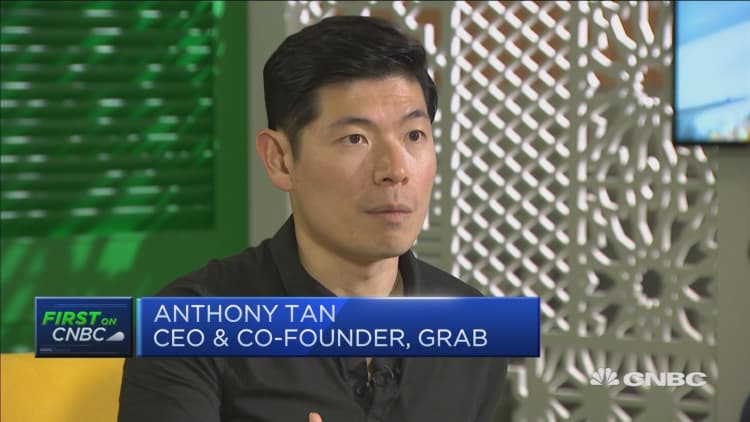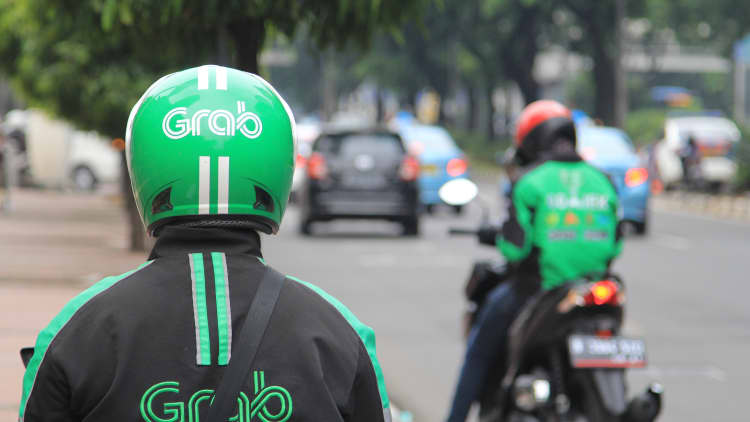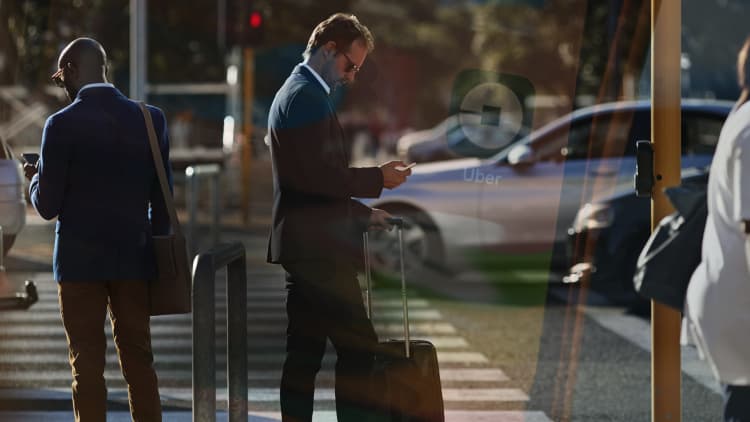
"It was something I dreamt about for sure," said Grab co-founder and CEO Anthony Tan as he reminisced about his early desires to defeat San Francisco ride-hailing giant Uber in his own backyard.
Speaking to CNBC just days after the announced deal to acquire Uber's Southeast Asia business, Tan admitted that winning doesn't always come easy: "Of course" there was debate, he said, about whether giving up 27.5 percent of the company to Uber was the right amount. Uber CEO Dara Khosrowshahi has said that stake is worth "several billion dollars."
Yet Tan isn't wasting time debating percentages, he said he's setting his sights on tackling the region's next big problem: the "many who are unbanked," working to make "the invisible, visible."
Ever since wrapping a $2 billion fundraising round led by Softbank and Didi Chuxing last July, Grab has been moving quickly to connect the millions of "invisibles" across the region to its financial services.
The GrabPay e-wallet launched across Southeast Asia in November of last year on the heels of the company introducing its peer-to-peer payments service. The financial technology push picked up momentum last month when Grab inked a joint venture with Japan's Credit Saison to form Grab Financial Services. On the same day, Grab announced a partnership with insurance giant Chubb for in-app insurance solutions.
Grab could, however, face even more formidable challengers than Uber in the race to bank the unbanked. China's big tech firms are competing in the space with Tencent's WeChat pay and Alibaba affiliate Ant Financial and have announced recent expansion plans in Southeast Asia. But Tan left the door open to teaming with, rather than defeating the internet giants.
"I think Ant Financial, again another great company, for us, as we are all about working with many, many partners. We don't fixate ourselves on who's the best partner ... we think about what are the biggest problems and how do we solve that problem," he said. "And if Ant Financial, or whoever, is another great partner, we are focused on that problem and on that segment of underbanked or invisible people that we can help and solve that problem."
Finding friends may come in handy when it comes to staking a leadership claim in Grab's biggest battleground: Indonesia. Home grown ride-hailing service GoJek, has also been investing in financial tech in a bid to capture the enormous amount of people in the country who don't have a bank account.
But Tan isn't taking the Indonesia challenge lightly, insisting Grab is already leading in transportation in the country, where most of his time is spent: "And now as we continue to invest in Indonesia we are very confident now with the Uber Eats assets we will also become the number one food player in this region. And then, as we continue to expand GrabPay, Grab Financial, that will expand throughout the region."

Grab's CEO is hoping that by cementing their position in ride-hailing and food delivery in crucial markets such as Indonesia, it will be easier to attract financial services clients through cross-promotion.
He sketched out what a day could look like for his ideal Grab consumer: "The minute they wake up, they book a car. The car comes and the guy has his car financed by Grab financial. He or she then pays for her lunch (at a) local noodle stall with Grab Pay, zips between meetings using a Grab bike then orders Grab food on the way home."
When asked whether plans to turn Grab into a multi-service platform for the masses puts the company on a firmer path to an initial public offering, Tan kept his cards close to his chest. Still, he said the Uber deal is a step in the right direction: "I mean, now that one sector of our businesses clearly has a clear path to profitability. That obviously becomes a closer and closer reality."



